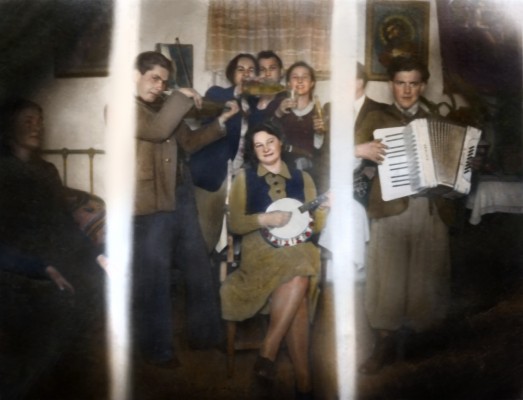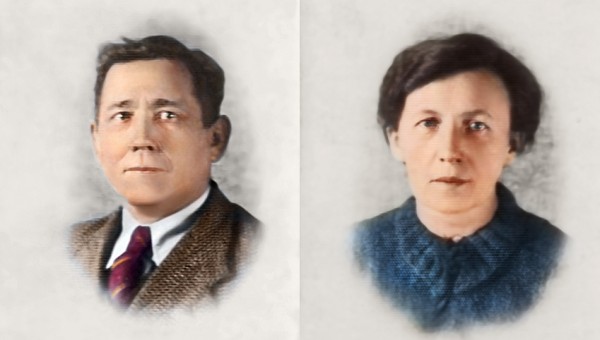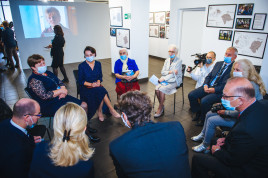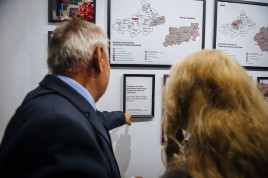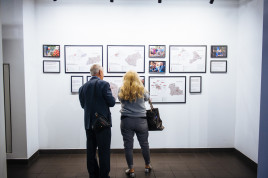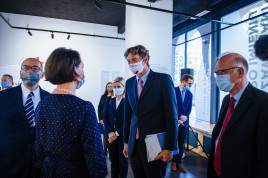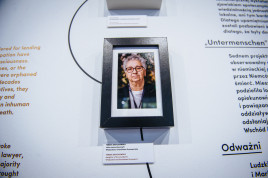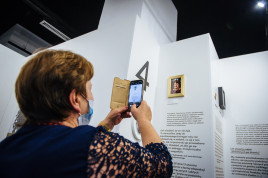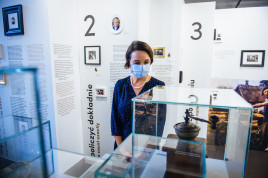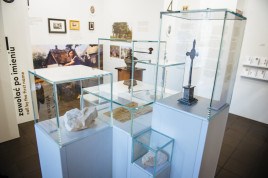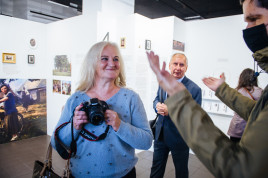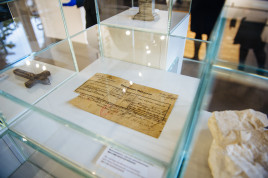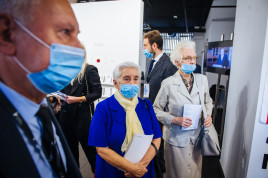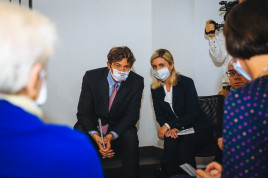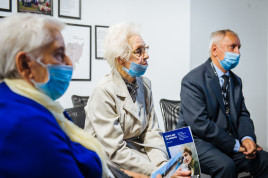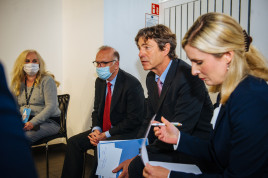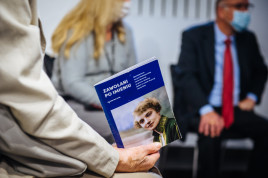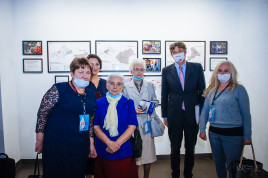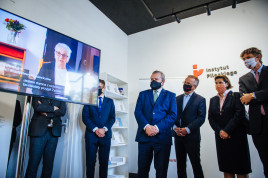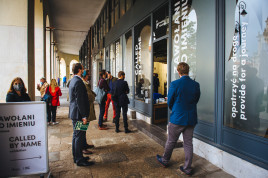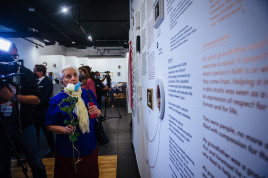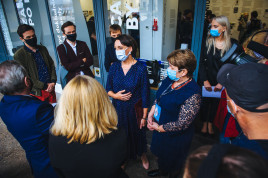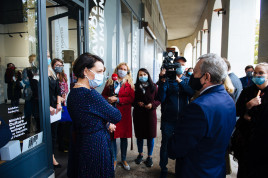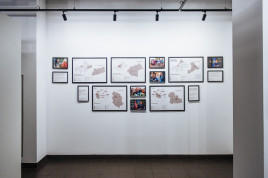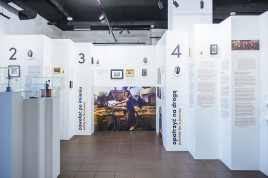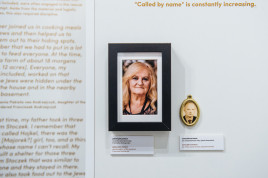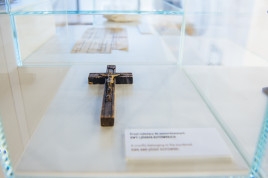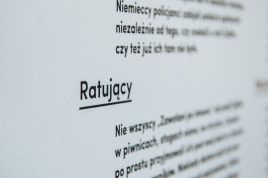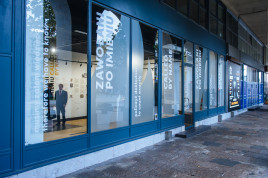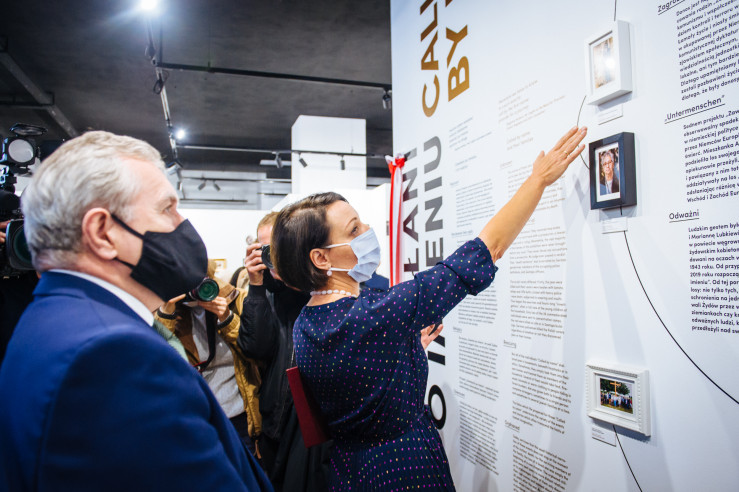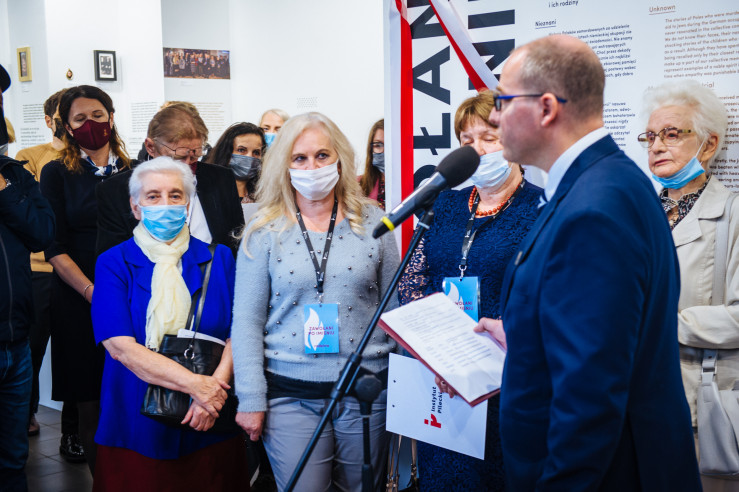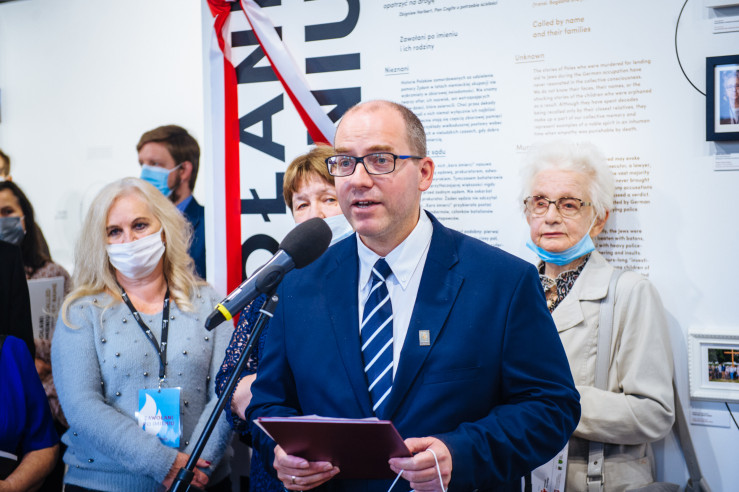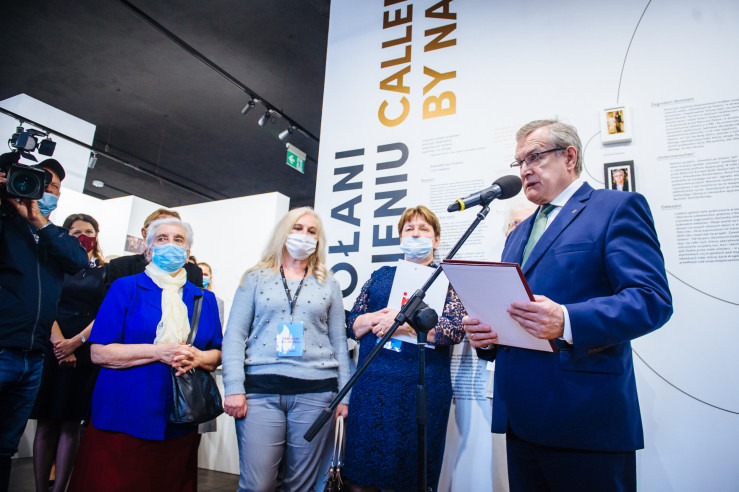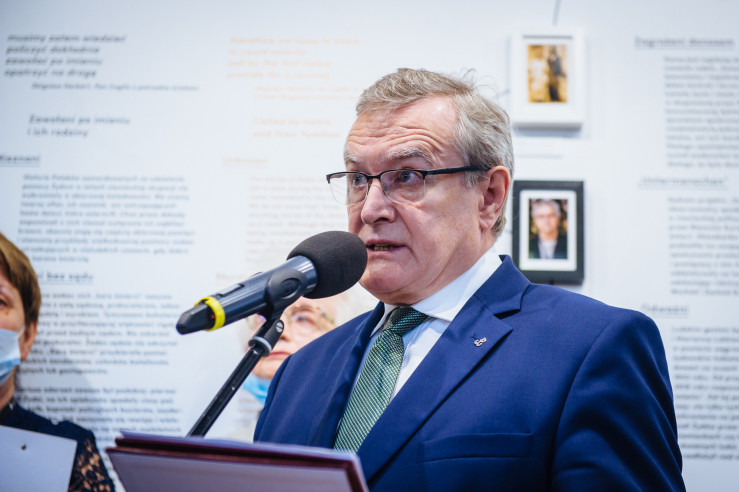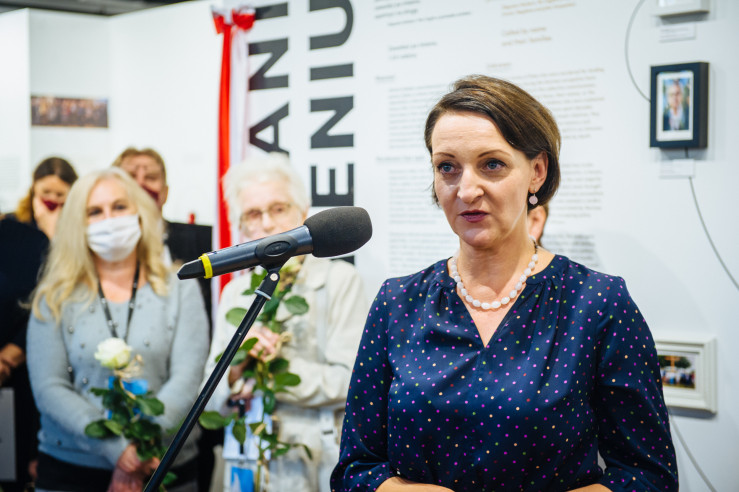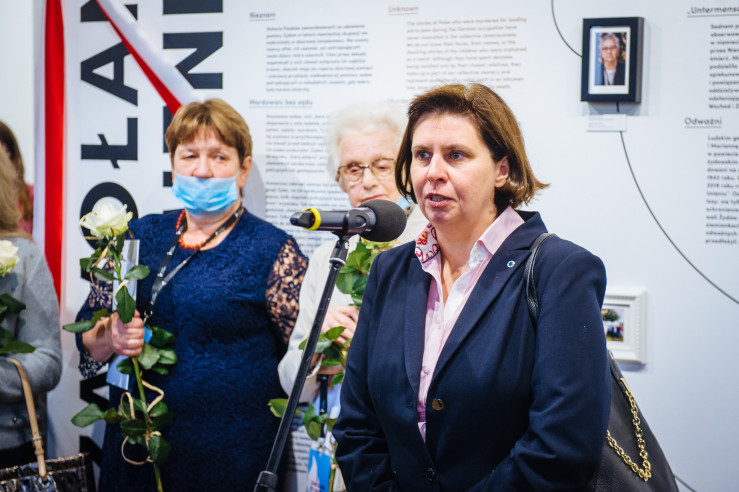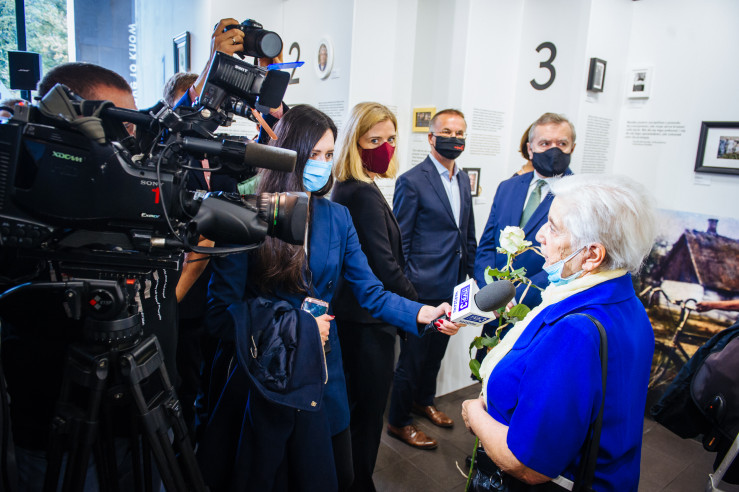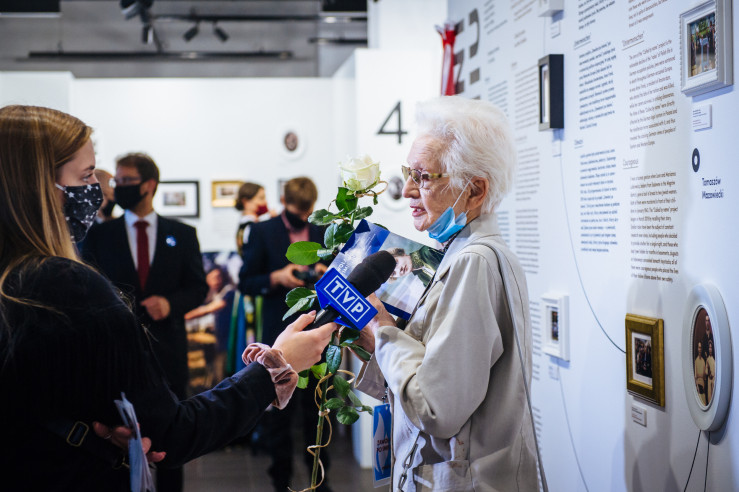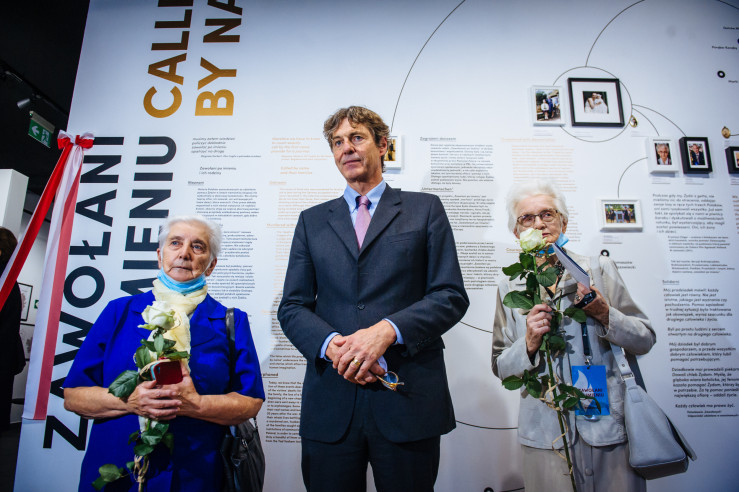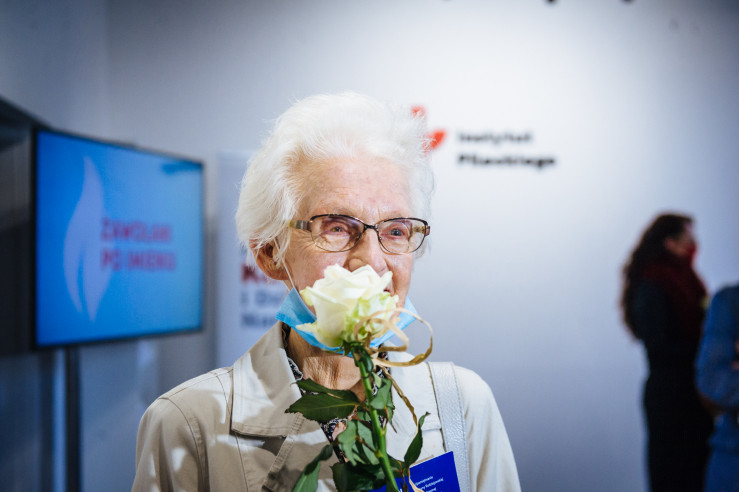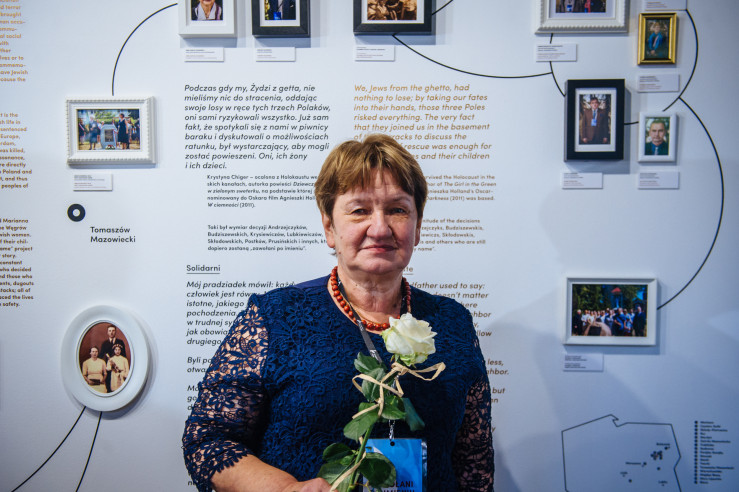Called by name | exhibition - Instytut Pileckiego
Called by name | exhibition
The exhibition tells the story of people who were outlawed and murdered without trial simply because they helped those whom the occupiers considered “subhuman”. Years later, we can recall the faces of Poles murdered for rescuing Jews and give a voice back to their loved ones.
We invite you to read the report from the opening of the exhibition, which took place on 2 October 2020.
________________________________________
Everyone in Sadowne, a small village in the county of Węgrów, knew young Lubkiewicz, who helped his parents run a bakery. The 25-year-old Stefan was a talented accordion player and looked handsome on horseback, especially in his high-topped leather shoes. Irena, Stefan’s younger sister, remembered that the Germans took them off right after he was shot. Their parents, Marianna and Leon, were also killed on 13 January 1943, in the backyard of their own home. There was no court, and no verdict was given. They were “guilty” of having given two young Jewish women a loaf of bread. Irena, who was a teenager at the time, received several blows to her stomach and back, but she survived. She saw the bodies of her parents and brother lying in the snow. She watched as the Germans plundered the house, taking away the flour, clothes, and equipment. Years later, she told her daughter, Grażyna Teresa, about these events. She spent her life trying to have her relatives recognized as “Righteous Among the Nations”. This happened only in 1997, eighteen years after her death. We had to wait even longer for Poles murdered for helping Jews to be honored by their own country. Years passed by, and it seemed that no one in democratic Poland remembered them anymore.
The Pilecki Institute commemorated Marianna, Leon and Stefan Lubkiewicz on 24 March 2019. This symbolic date (the National Day for the Remembrance of Poles who Rescued Jews under the German Occupation) marked the beginning of the “Called by Name” project, initiated by Prof. Magdalena Gawin, Deputy Minister of Culture and National Heritage. To date, the Institute has honored 36 heroes in 14 locations as part of the project, recalling their faces and stories and giving a voice to their families. The materials collected over the course of research into the fates of the “Called by Name” – archival documents and photographs, objects belonging to the victims, interviews with their families, and studies on the German terror apparatus to which the inhabitants of occupied Poland were subjected – served as the foundation for the “Called by Name” exhibition, which opened on 2 October 2020, at Dom bez Kantów in Warsaw. It is the Institute’s new exhibition space, acquired thanks to the idea and efforts of Prof. Piotr Gliński, Deputy Prime Minister and Minister of Culture and National Heritage.
During the opening, the Pilecki Institute was honored to host the families of the “Called by Name”: Anna Radwańska, daughter of Lucyna Radziejowska; Grażyna Teresa Olton, niece of Stefan and granddaughter of Marianna and Leon Lubkiewicz; Cecylia Tomczuk, granddaughter of Aleksandra and daughter of Hieronim Skłodowski; and Janina Janczarska, granddaughter of Franciszek Andrzejczyk, with her husband. All of them unanimously declared that the events all those years ago influenced both the fate of their relatives and the later generations: “I will never know what profession my uncle Stefan Lubkiewicz would have chosen. I never met my grandparents. My mother’s life was changed forever. She became an orphan, deprived of family and possessions (...). I’m glad that for the first time someone has noticed the difference between the fate of our relatives and the rest of the Righteous. Our relatives died as they saved their neighbors. The murderers of my family were never prosecuted. They were never brought before a German court. They have no names (...). The Christian requirements of forgiveness will be fulfilled – but we should know whom to forgive.”
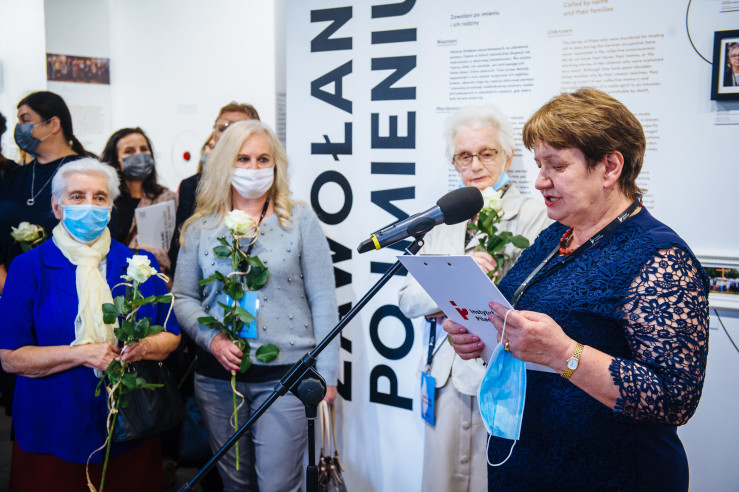
The exhibition also answers the question that gave rise to the project: why does the Pilecki Institute research the fate of Poles murdered for helping Jews? During the opening of the exhibition, this issue was raised by Prof. Magdalena Gawin, Deputy Minister of Culture and National Heritage, the initiator of the “Called by Name” project: “there were many similar circumstances, but rescuing Jews in Poland was something entirely dissimilar to rescuing them in France or Holland – this exhibition shows those differences perfectly. The price was the ‘so-called’ death penalty (I say ‘so-called’ because it involved neither a court, nor a prosecutor, nor a judge). But above all, we commemorate them in order to give voice to the families of the ‘Called by Name’. We repeat and will continue to repeat that these stories do not end on the day of their death. The families faced a very difficult period of life in communist Poland, one that stretched over decades. That is why there are two pillars of this program: first, the family, and second, the place.”
These words may come as a surprise considering the fact that Poles constitute the majority of “Righteous Among the Nations” medal recipients, totaling about seven thousand. However, this large group does not include many of the murdered rescuers, because Jews often died with them at the same place and time, and itt is the testimonies of survivors that are crucial for Yad Vashem Institute to processes awarding the honor. For this reason, Prime Minister Mateusz Morawiecki, in a letter read by Dr. Wojciech Kozłowski, director of the Pilecki Institute, called for “(...) more anonymous Polish heroes to be found and commemorated with dignity. So many of them still need to be ‘Called by Name’, and their families need to be assured that Poland remembers them, that their sacrifice has become the foundation of a better world for future generations.” In turn, Prof. Piotr Gliński, Minister of Culture and National Heritage, addressed the families of the commemorated victims who lost everything when their parents, grandparents or siblings were killed: “(...) property, farm, health, the will to live. To this day, neither the victims nor their descendants have received due moral and material compensation in this respect. (...) It is extremely important that more and more people in Poland and abroad discover the ‘Called by Name’, and by appreciating their self-sacrifice, see the injustice that befell them. How difficult it is to be a hero in a time of contempt and humiliation, of totalitarian intimidation. With their actions, the ‘Called by Name’ broke this rule, for which they deserve special memory and deep respect (...). In a common Europe we have long been waiting for a monument to the Polish victims of German terror in Berlin; a monument to the 6 million victims, including 3 million Polish Jews and 3 million Poles and representatives of various national minorities.”
In this context, there was a symbolic dimension to the presence of representatives of the Jewish community and the German ambassador, Arndt Freytag von Loringhoven, who confessed that he came from “a nation of perpetrators”. “German responsibility for the barbarity of National Socialism will never disappear. Germans admit their responsibility and we call the perpetrators by name. The memory must prevail – the knowledge of what happened must remain alive. Accountability for the crimes must continue. In this way, we can contribute to the continuation of the memory of the victims as the memory of brave people who stood up to inhuman barbarism. (...) I support the idea of creating a memorial in Berlin for the victims of war and occupation on Polish territory.”
The exhibition also reminds us of the motives behind helping Jewish people in times of ubiquitous terror and danger. One of them was the Christian faith, based on the Decalogue and the commandment to love one’s neighbor. As Prof. Magdalena Gawin noted, the “Called by Name” project resolves “a certain important dilemma. Most of the ‘Called by Name’ who rescued Jews – the Andrzejczyk family hid as many as 18 people, so you can imagine what it must have been like – suffered death themselves. So what was the point: to hide others, to expose oneself and one’s family to danger, and in the end to save no one? (...) On 29 June, on the solemnity of the Holy Apostles Peter and Paul, the following fragment of the Holy Bible is read in all churches in Poland: I have fought a good fight, I have finished my course, I have kept the faith. I would like to say that all members of the families of the ‘Called by Name’ who died, fought the good fight, finished their course and kept the faith”.
Explore the stories of those who acted with kindness and decided to help others: Visit the exhibition at “Dom Bez Kantów” at Krakowskie Przedmieście Street 11 in Warsaw (open daily between 10 and 6 p.m.; free entrance)!
Reservations: +48 539 093 336, wystawa.zawolani@instytutpileckiego.pl
